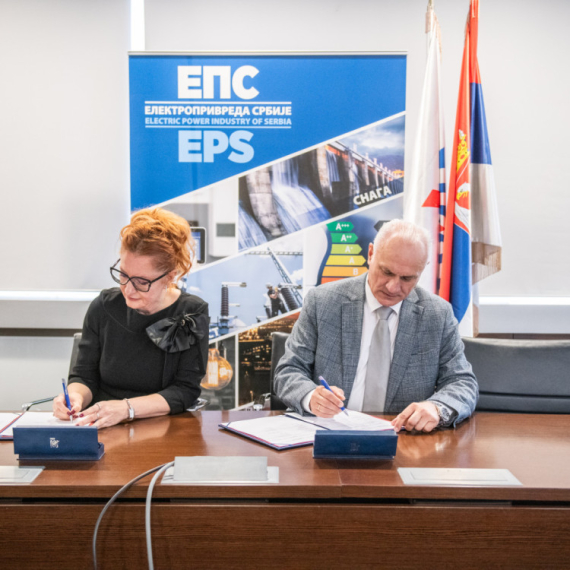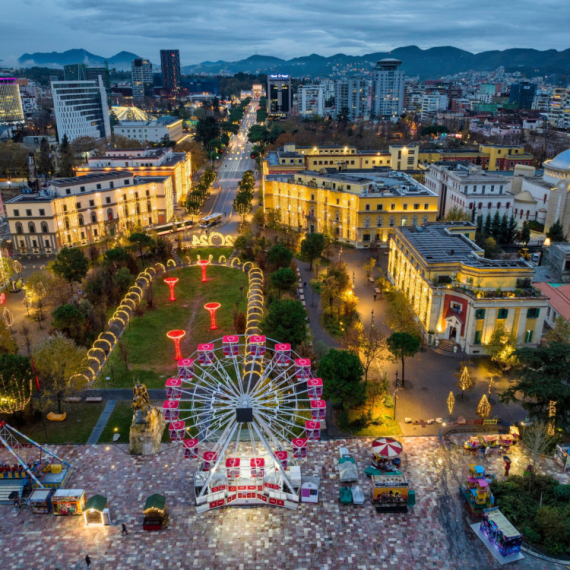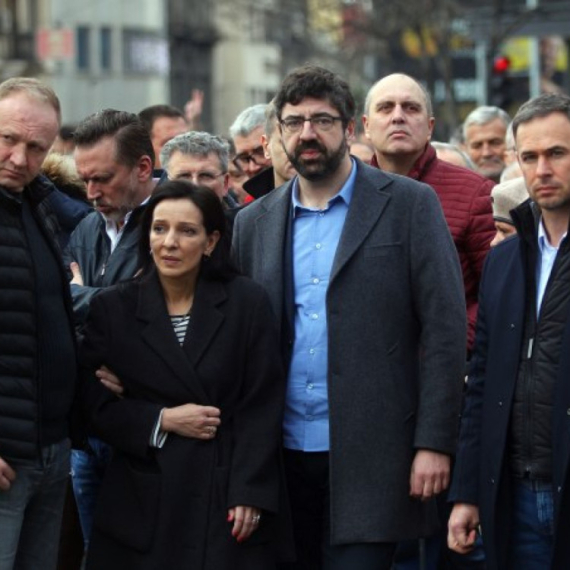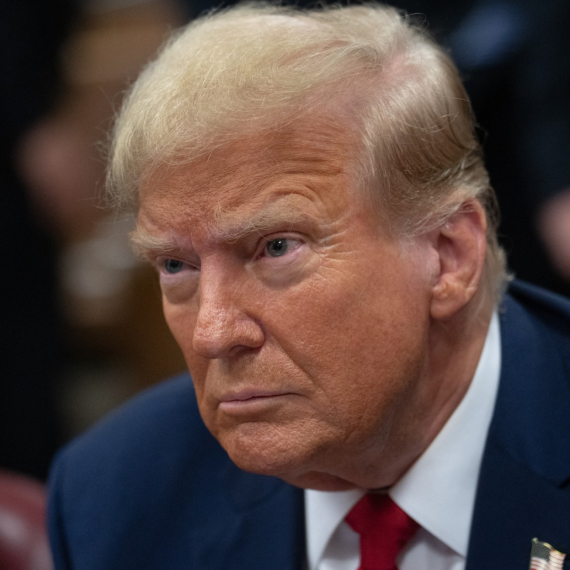Elections likely to be postponed
Reports suggest that the Democratic Party (DS) will after all agree to a postponement of presidential and local elections.
Monday, 15.10.2007.
16:48

Reports suggest that the Democratic Party (DS) will after all agree to a postponement of presidential and local elections. Head of the DS parliament group Nada Kolundzija said that the party was prepared to accept the argument that it was not good to hold elections in December, if, at the time, Kosovo talks were in their final phase. Elections likely to be postponed Asked if the move represented a form of concession to the Democratic Party of Serbia (DSS), she told journalists at the parliament Monday that, “the DS is holding to what it insisted on at the start and there is no question of any concession.” Kolundzija added that it was significant that the DSS had confirmed that, as far as elections were concerned, there would be no breach of Constitutional Law, which the Democrats have insisted on since the outset. “If there is a genuine chance that certain processes will be reaching their final stages, and that holding elections at such a time would be unwise, then the DS is prepared to accept that argument,” she said. According to her, it was necessary to ascertain whether December 10 would be D-Day and, if the Kosovo status settlement process was to continue beyond that date, what would that mean as far as normal day-to-day life was concerned and for the functioning of the country’s democratic institutions. Democratic Party of Serbia MP Milos Aligrudic stated today that talks on calling presidential and local elections were in progress. Aligrudic told reporters that his party still believed that elections should not be held before December 10, while the current phase of Kosovo talks was still in progress. In his opinion, the question of the election calendar, together with a possible change of Constitutional Law, should not be considered until after December 10. Serb Radical Party (SRS) leader Tomislav Nikolic said that elections should ideally be postponed in line with the law. “We’re ready for elections and we’ll take part if we have to, but nonetheless we will say that it is immoral to hold elections because of the Kosovo situation,” Nikolic told journalists at the National Parliament. The Radicals leader repeated his proposal that he, Boris Tadic and Vojislav Kostunica meet to try and work how they were going to deal with the matter from the point of view of Constitutional Law, and to arrange a suitable date for the elections. Socialist Party of Serbia (SPS) leader Ivica Dacic said that his party wanted elections held tomorrow, but given the fact that in December Kosovo’s future was most likely to be at the top of the agenda, it would be unwise to create any more political instability. “One thing I am certain of is that there will be elections either in December, or not until next autumn, once Kosovo’s fate has been settled,” predicted Dacic. On the other hand, Liberal Democratic Party leader Cedomir Jovanovic said today that postponement of elections was unacceptable for his party, and repeated his wish for elections to be called at all levels. He told journalists that Prime Minister Vojislav Kostunica was continuing to blackmail the country with his policies, but that the bigger problem was Boris Tadic who “kept giving in to the blackmail.”
Elections likely to be postponed
Asked if the move represented a form of concession to the Democratic Party of Serbia (DSS), she told journalists at the parliament Monday that, “the DS is holding to what it insisted on at the start and there is no question of any concession.”Kolundžija added that it was significant that the DSS had confirmed that, as far as elections were concerned, there would be no breach of Constitutional Law, which the Democrats have insisted on since the outset.
“If there is a genuine chance that certain processes will be reaching their final stages, and that holding elections at such a time would be unwise, then the DS is prepared to accept that argument,” she said.
According to her, it was necessary to ascertain whether December 10 would be D-Day and, if the Kosovo status settlement process was to continue beyond that date, what would that mean as far as normal day-to-day life was concerned and for the functioning of the country’s democratic institutions.
Democratic Party of Serbia MP Miloš Aligrudić stated today that talks on calling presidential and local elections were in progress.
Aligrudić told reporters that his party still believed that elections should not be held before December 10, while the current phase of Kosovo talks was still in progress.
In his opinion, the question of the election calendar, together with a possible change of Constitutional Law, should not be considered until after December 10.
Serb Radical Party (SRS) leader Tomislav Nikolić said that elections should ideally be postponed in line with the law.
“We’re ready for elections and we’ll take part if we have to, but nonetheless we will say that it is immoral to hold elections because of the Kosovo situation,” Nikolić told journalists at the National Parliament.
The Radicals leader repeated his proposal that he, Boris Tadić and Vojislav Koštunica meet to try and work how they were going to deal with the matter from the point of view of Constitutional Law, and to arrange a suitable date for the elections.
Socialist Party of Serbia (SPS) leader Ivica Dačić said that his party wanted elections held tomorrow, but given the fact that in December Kosovo’s future was most likely to be at the top of the agenda, it would be unwise to create any more political instability.
“One thing I am certain of is that there will be elections either in December, or not until next autumn, once Kosovo’s fate has been settled,” predicted Dačić.
On the other hand, Liberal Democratic Party leader Čedomir Jovanović said today that postponement of elections was unacceptable for his party, and repeated his wish for elections to be called at all levels.
He told journalists that Prime Minister Vojislav Koštunica was continuing to blackmail the country with his policies, but that the bigger problem was Boris Tadić who “kept giving in to the blackmail.”



















Komentari 1
Pogledaj komentare